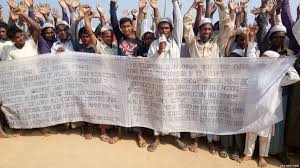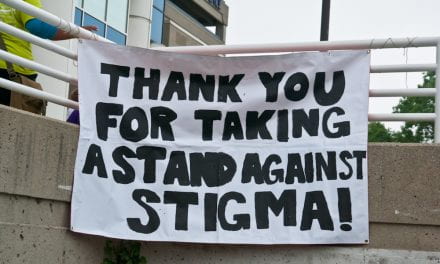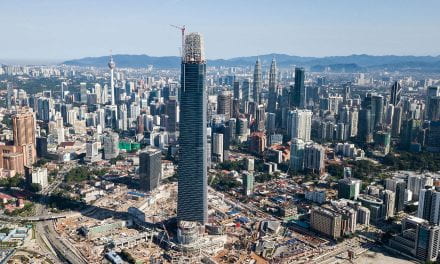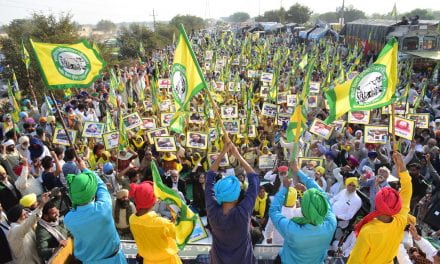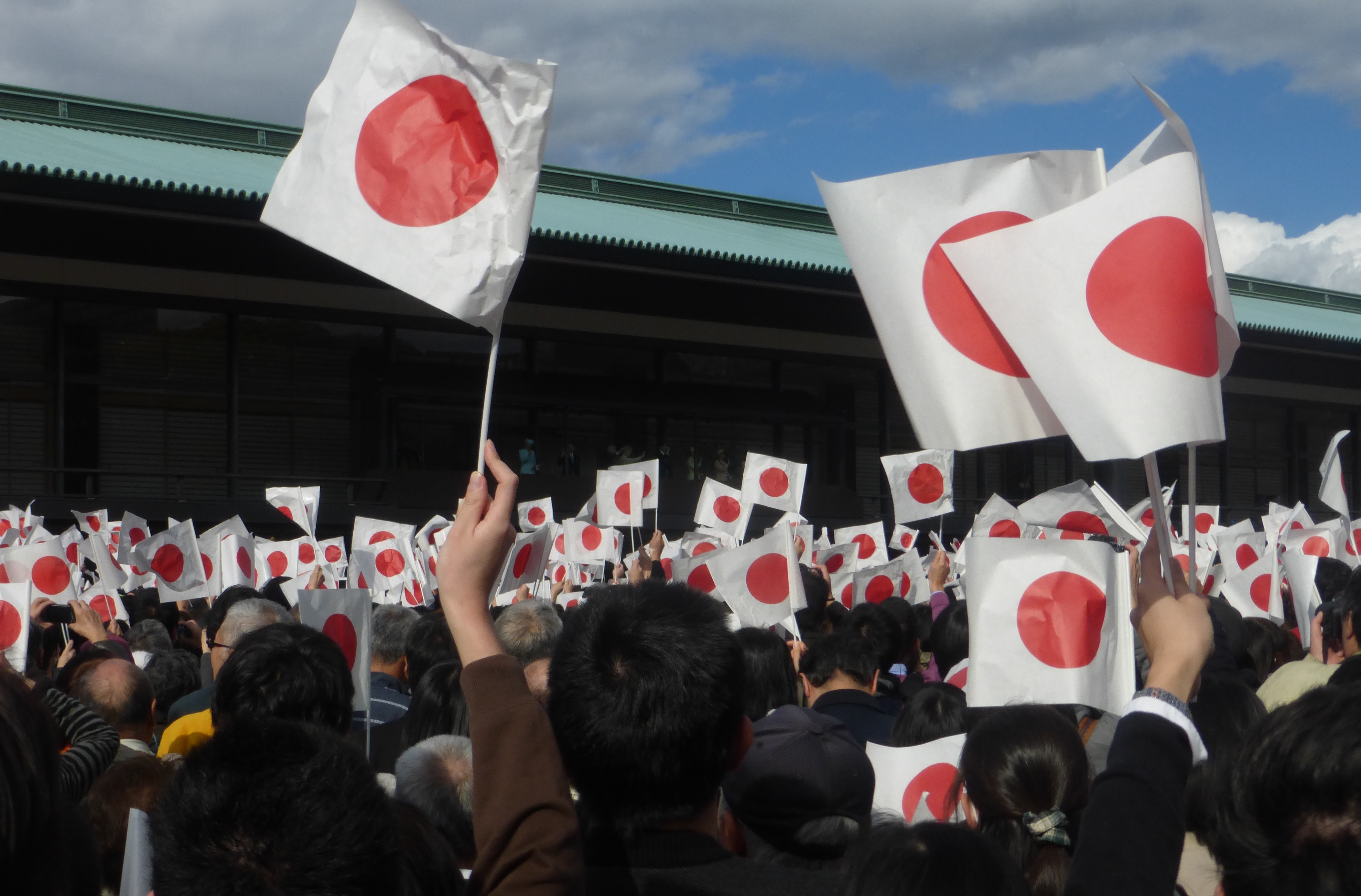By: Ezihe Chikwere*
Ethnic, religious, and cultural differences can be catalysts for perpetuated violence. However, the recurrence of violence around the world should not lead the international community to normalize crimes against humanity. Due to every state constructed right to sovereignty, the propensity of states has been to ignore genocides, ethnic cleansing, and other acts of malicious even after the development of the United Nations. States manifest their indifference through their lack of intervention but also by failing to even acknowledge these acts of violence as being what they truly are. The United Nations (U.N.) was not chartered to fix the world and derail all conflicts. However, it was designed to stand as a symbol for what states value. Thus, in July of 1998, the states of the United Nations ratified the Rome Statute of the International Criminal Court which established the International Criminal Court (ICC) in 2002. The ICC “investigates and, where warranted, tries individuals charged with the gravest crimes of concern to the international community: genocide, war crimes, crimes against humanity, and crimes of aggression”. Among its relevant provisions to the Rohingya, the ICC defines crimes against humanity under Article 7 as, “murder, extermination, deportation or forcible transfer of population, rape, sexual slavery, and enforced prostitution” when committed as a widespread or systematic attack against a civilian population[1]. Although these are not all of the provisions that are definitive of a crime against humanity under the ICC, these are relevant to the crisis in Rohingya.
By refusing to formally recognize crimes against humanity, states become enablers for such crimes against humanity, as seen in the case of the Rohingya, whose treatment, as we will see, qualifies. Member-states of the United Nations have been aware of the life-calculated conditions in Rohingya since 2016 and have failed to act swiftly. Due to the indifference of other states, the Rohingya people are still in dire need of aid and assistance. The world must not continue to ignore these crimes against humanity. Instead, a call for action must be implemented to hold all member states accountable for the sake of the Rohingya people.
On August 28, 2018 Secretary General Antonio Gutierrez delivered a speech regarding the ethnic cleansing of the Rohingya people in Myanmar in which he observed, “I join you today with a heavy heart. The massive refugee emergency that began one year ago in Rakhine State, Myanmar, has become one of the world’s worst humanitarian and human rights crises.”[2]
The UN backed its words with action when the United Nations High Commissioner for Refugees began a program that so far has aided 80,000 refugee families with shelter kits.[3] However, this does not include the number of refugees and displaced persons that are still unaccounted for. By presenting a heart wrenching message, Gutierrez is calling upon the UN member states to acknowledge and fight against the crisis and the global impacts of the crisis in Rohingya.
The Rohingya people are the Muslim minority living in the predominantly Buddhist state of Myanmar, and they have been living in turmoil for decades.[4] As a group, the Rohingya people are a mixture of pre-colonial and colonial immigrants following the Burmese independence in 1948. Since the independence of Burma, present day Myanmar, the Myanmar government has refused to recognize the Rohingya people as citizens because they characterize them as illegal immigrants that migrated from Bangladesh. Thus, the Rohingya have been victims of religious, ethnic, and cultural persecution. U Wunna Shwe, a joint secretary of the Islamic Religious Affairs of Myanmar stated, “All Muslim communities across the country are more or less being targeted for what is happening in the Rakhine state.”[5] The goal of the Myanmar government is to rid Myanmar of the Rohingya people so that they can be an ethnically and religiously homogenous state. The Myanmar government has refused to recognize legitimacy of the Rohingya people, leaving them without voting rights and legal documentation, ultimately forcing them to be stateless. Without these basic rights, the Rohingya people were, and still are being forced into social, political, and economic exile in their own homes. Thus, these acts qualify as crimes against humanity under the ICC. Although they did not physically remove the Rohingya, denying them rights of citizenry, inevitably falls under the rode to extermination.
The history of persecution of the Rohingya people has been an ongoing and prolonged concern. The 1970’s was a tumultuous decade for the Rohingya people, specifically the beginning of the Operation Dragon King campaign in 1978.[6] Under this campaign, the Myanmar military began an overall ethnic cleansing and expulsion of the Rohingya population. As a result, about 10,000 Rohingya people flooded into Bangladesh. To systematize their oppression, in the 1990’s the Myanmar government forced the Rohingya to carry “white cards” which are essentially identification cards that allow the Rohingya to go to work, vote, and be accounted for.[7] These cards, however, are not equivalent to their long-desired citizenship. To further systemize their oppression, in 2015, Thein Sein, who was president at the time, revoked their white cards. As a result, the Rohingya people were banned from voting and running in elections. In March 2017, Rohingya laborers were forced to start construction of a two hundred-kilometer fence to prevent those who sought freedom in Bangladesh from returning to Myanmar. Due to the systematic and institutionalized oppression, the Rohingya people have been forced into poverty and social exile.
As of today, the conflict persists and the qualifications as a crime against humanity are clear. In 2017, the Myanmar government declared the Arakan Rohingya Salvation Army (ARSA) a terrorist organization after their attack on the Myanmar police and army posts.[8] However, ARSA was retaliating against the Myanmar government after years of violence and persecution inflicted upon their people. As a result, the Myanmar government ordered a series of attacks on the Rohingya people- burning villages, forcing civilians to leave and killing almost 7,000 civilians in just the first month of the perpetuated violence and forced migration.[9] United States Ambassador to the United Nations, Nikki Haley stated, “Myanmar authorities have carried out a brutal, sustained campaign to cleanse the country of an ethnic minority.”[10] Myanmar authorities have even gone to the extent of opening fire on fleeing Rohingyans and placing land mines in Rohingya territory. Purposefully opening fire on the Rohingya population symbolizes the extent to which the Myanmar government is willing to hurt this population. As such, Rohingya people have fled to bordering states such as Bangladesh, Thailand, Indonesia, and Malaysia. Rohingya civilians have traveled thousands of miles on foot and on boat in search of sanctuary, making this now a transnational conflict.
These countries however, especially Bangladesh, have begun to close their borders to Rohingya refugees. In 2016, 21,900 Rohingya civilians fled Myanmar and into Bangladesh. As of today, over 733,000 civilians have sought refuge and in response, the Bangladesh government has tightened its borders and sent thousands of Rohingyans back into a Myanmar to face their death and further expulsion.[11] According to the United Nations High Commissioner for Refugees, about 43,000 Rohingya parents have been reported lost, leaving their children orphaned in unknown countries.[12] The overall crimes committed by government officials include, but are not limited to, rape, murder, torture, and sex slavery.[13] Former UN Special Representative for Children and Armed Conflict stated, “The scale, brutality, and systematic nature of rape and violence indicate that they are part of deliberate strategy to intimidate, terrorize, or punish the civilian population.”
The forced migration and ethnic cleansing of the Rohingya people is sadly comparable to many others. By comparing the crimes against humanity against the Rohingya people to other genocides, the actions of states and separate entities like the United Nations must be measured to see if their work against genocide and other crimes against humanity have improved. States and the United Nations should be proactive when humanitarian crises arise. States, however, have failed to intervene, as seen in the Rwandan genocide. The Rwandan genocide in 1994 was the mass killing of the Tutsi civilian population and moderate Hutus due to a struggle for power between both ethnic groups. In just three months, Hutus slaughtered up to 800,000 civilians, forcing the Tutsis population to flee their homes and seek refuge in bordering states.[14] As a response to the genocide, Kofi Anan, who was the Secretary General at the time stated, “one of the reasons for our failure in Rwanda was that for too long we could not bring ourselves to recognize it.”[15]
A comparable pattern of failed state action is seen today because 24 years after the Rwandan genocide, the United Nations has made sluggish progress towards humanitarian reform regarding crimes against humanity and genocide. In December of 2016, former UN Secretary General Kofi Anan refused to use the word genocide to describe the atrocities occurring in Myanmar against the Rohingya people. Anan stated, “I think there are tensions, there has been fighting, but I wouldn’t put it the way some have done.”[16] Anan followed up further and stated, “observers should be very, very careful in using the word genocide.”[17] Being “careful”, however, has only led to the enabling of genocide in Rwanda and now in Myanmar. Encouraging states to be careful, only allows states to be slow in action when crimes against humanity arise. It is important to define what is happening in Rohingya because giving a name to the violence mandates state action. The United Nations was founded to exude and enforce five main goals which include but are not limited to- maintaining international peace and security, protecting human rights, delivering humanitarian aid, promoting sustainable development, and upholding international law. The concept and act of crimes against humanity inevitably falls under these goals. As previously stated, the ICC has the power and jurisdiction to hold their signatories accountable to acting in opposition to crimes against humanity. By being declared an international crime and therefore law, states are figuratively required to intervene in any way that they can.
Although it is impossible to ask states to be proactive in preventing violence, asking states to act swiftly and promptly is not. As a response to the refugee crisis that stemmed from the violence in Myanmar, the UNHCR has launched a Joint Response Plan (JRP) for the Rohingya Humanitarian Crisis. Essentially, this action plan calls for $951 million to aid the Rohingya people in Bangladesh and other states in which they fled to.[18] The full amount has yet to be raised which proves to show the lack of willingness of states to act swiftly. If acts of crimes against humanity are to be derailed, then states must show their willingness to provide aid, support the victims of crimes against humanity such as refugees and displaced persons, and formally condemn these crimes in a timely manner. For example, Secretary General Antonio Gutierrez described the events as “ethnic cleansing and catastrophic.” Putting a name to the violence is the first step to helping the Rohingya people and others who have been victims of ethnic cleansing. The next step is formally condemning the Myanmar government for supporting and enabling the humanitarian crisis in Rohingya. In the final steps, states must provide aid in any way they can- whether it is donating money to the Joint Response Plan, accepting refugees, or helping their movement into safer regions. This is their call to action.
[1] Rome Statute of the International Criminal Court. July 1, 2002.
[2] Antonio Gutierrez, “Secretary-General’s remarks at open debate of the Security Council on Myanmar”, United Nations Secretary- General September 28, 2017. https://www.un.org/sg/en/content/sg/statement/2017-09-28/secretary-generals-remarks-open-debate-security-council-myanmar
[3] The UN Refugee Agency, “Rohingya Emergency”, The UN Refugee Agency August 25, 2017. http://www.unhcr.org/en-us/rohingya-emergency.html
[4] Eleanor Albert, “The Rohingya Crisis”, The Council on Foreign Relations April 20, 2018. https://www.cfr.org/backgrounder/rohingya-crisis
[5] Ann Wang, “Why the Rohingya will never be welcome in Myanmar”, Post Magazine September 30, 2017. https://www.scmp.com/magazines/post-magazine/long-reads/article/2113253/why-rohingya-will-never-be-welcome-myanmar
[6] Eleanor Albert, “The Rohingya Crisis”, The Council on Foreign Relations April 20, 2018. https://www.cfr.org/backgrounder/rohingya-crisis
[7] Eleanor Albert, “The Rohingya Crisis”, The Council on Foreign Relations April 20, 2018. https://www.cfr.org/backgrounder/rohingya-crisis
[8] The Guardian, “Who are the Rohingya and what is happening in Myanmar”, The Guardian September 2017. https://www.theguardian.com/global-development/2017/sep/06/who-are-the-rohingya-and-what-is-happening-in-myanmar
[9] Brad K Blitz, “Refugees in Burma, Malaysia, and Thailand: Rescue for the Rohingya”, The Chatham House May 2018. https://www.jstor.org/stable/pdf/41962527.pdf?refreqid=excelsior%3Aeeb457eebd3b2bd6d97c3ab60d769209
[10] Eleanor Albert, “The Rohingya Crisis”, The Council on Foreign Relations April 20, 2018. https://www.cfr.org/backgrounder/rohingya-crisis
[11] The UN Refugee Agency, “Rohingya Emergency”, The UN Refugee Agency August 25, 2017. http://www.unhcr.org/en-us/rohingya-emergency.html
[12] The Guardian, “Who are the Rohingya and what is happening in Myanmar”, The Guardian September 2017. https://www.theguardian.com/global-development/2017/sep/06/who-are-the-rohingya-and-what-is-happening-in-myanmar
[13] Laignee Barron, “More than 43,000 Rohingya Parents may lead be missing. Experts fear they are dead”, Time March 7, 2018. http://time.com/5187292/rohingya-crisis-missing-parents-refugees-bangladesh/
[14] BBC, “Rwanda genocide: 100 days of slaughter”, BBC April 7, 2014. https://www.bbc.com/news/world-africa-26875506
[15] Kofi Annan, “Address by Kofi Annan to the Commission on Human Rights”, United Nations Secretary- General April 7, 2004. https://www.un.org/sg/en/content/sg/speeches/2004-04-07/address-kofi-annan-commission-human-rights
[16] BBC, “Kofi Annan downplays claims of Myanmar genocide”, BBC December 6, 2016. https://www.bbc.com/news/world-asia-38223055
[17] BBC, “Kofi Annan downplays claims of Myanmar genocide”, BBC December 6, 2016. https://www.bbc.com/news/world-asia-38223055
[18] The UN Refugee Agency, “Rohingya Emergency”, The UN Refugee Agency August 25, 2017. http://www.unhcr.org/en-us/rohingya-emergency.html
*Disclaimer: The content contained in the following material is the sole ownership of the author and does not reflect the Towson University Journal of International Affairs nor Towson University in any respect whatsoever.

